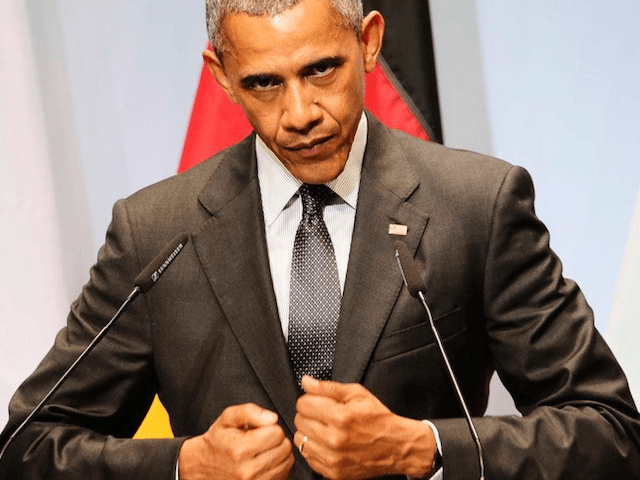
President Donald Trump’s administration proposed a new rule on Thursday to rescind onerous Obama-era gas mileage requirements.
Trump’s Environmental Protect Agency (EPA) and the Department of Transportation’s (DOT) National Highway Traffic Safety Administration (NHTSA) released a proposed rulemaking to adjust the automobile fuel economy and greenhouse gas emissions standards to give Americans access to safer, cleaner, and ultimately, more affordable cars. The rulemaking will set the Corporate Average Fuel Economy (CAFÉ) and light-duty vehicle greenhouse emissions standards for light trucks and will set the greenhouse gas and mileage standards for 2021-2026.
Acting EPA Administrator Andrew Wheeler said in a statement on Thursday:
We are delivering on President Trump’s promise to the American public that his administration would address and fix the current fuel economy and greenhouse gas emissions standards. Our proposal aims to strike the right regulatory balance based on the most recent information and create a 50-state solution that will enable more Americans to afford newer, safer vehicles that pollute less. More realistic standards can save lives while continuing to improve the environment. We value the public’s input as we engage in this process in an open, transparent manner.
“There are compelling reasons for a new rulemaking on fuel economy standards for 2021-2026,” said DOT Secretary Elaine Chao in a press release on Thursday. “More realistic standards will promote a healthy economy by bringing newer, safer, cleaner and more fuel-efficient vehicles to U.S. roads and we look forward to receiving input from the public.”
The EPA contended in a press release on Thursday that the current Obama-era gas mileage standards have been a factor in the rising cost of cars to an average of $35,000, which makes purchasing a new vehicle unaffordable for many Americans. The Obama-era standard mandated that automobiles sold by car companies have to reach 50 miles per gallon (MPG) by 2025.
Under the Trump’s administration’s new proposal, cars and light-trucks would only have to average 37 MPG by 2026.
The Trump administration also said on Thursday that it will propose to rescind California’s unique authority to set its own fuel economy standards and that the EPA and DOT hope to set one national gas mileage and emissions standard for the entire nation. After the EPA announced in April that it intends to remove the Obama-era mileage standard, California and 16 other states sued the EPA to fight the Trump rule change. The federal government has issued a waiver for years so that California can set higher mileage standards than the rest of the country.
Mitch Bailwol, the president and chief executive of the Alliance of Automobile Manufacturers, said in April that he remains committed to one national mileage and emissions standard.
“We can’t comment on a determination we haven’t seen, but remain absolutely convinced that one national program is the preferred policy path,” Bainwol contended.
Myron Ebell, a senior energy scholar at the Competitive Enterprise Institute (CEI) and Trump EPA transition chair, cheered the Trump administration’s proposed rule change on Thursday.
Ebell said:
The administration’s announcement that it will relax future fuel economy (CAFE) standards is good news for consumers. It means that the federal government will have slightly less control over the kinds of cars and trucks people can buy. It might even cause car prices to stop increasing so rapidly. Even better news is the decision to take California out of the driver’s seat for setting CAFE standards for the entire country. Letting one state make decisions for people in other states makes a bad program even worse, especially since the state is California, which has been pursuing an anti-car agenda for decades.
Thomas Pyle, the president of the American Energy Alliance, said in a statement on Thursday:
What started as a mandate in the mid-1970’s to reduce foreign imports of oil morphed into a costly and unworkable environmental regulation thanks to bureaucrats in the previous Administration and in Sacramento. President Trump should be commended for standing up for American consumers by reducing the regulatory burden placed unnecessarily on automakers.
The fundamental question associated with this mandate is clear: who should decide what types of cars consumers should buy, consumers themselves or bureaucrats in Sacramento or Washington?
“We think that answer is clear, and, consequently, welcome the Administration’s action,” Pyle added.
via Breitbart News
Enjoy this article? Read the full version at the authors website: https://www.breitbart.com
